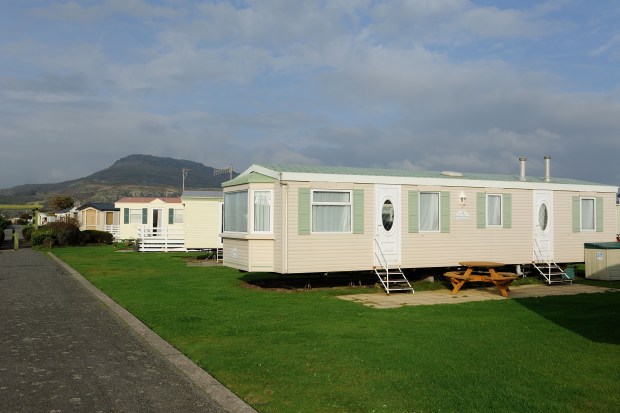Argentina’s airports have been repeatedly plunged into chaos as a clash escalates between libertarian President Javier Milei and workers at the country’s flag carrier, Aerolíneas Argentinas.
In the first major confrontation between Milei’s free market reform drive and Argentina’s powerful unions, strikes are threatening travel around the 1mn-square-mile country, as the start of the nation’s peak holiday season looms in December.
Labour unions representing employees at state-owned Aerolíneas Argentinas, which controls two-thirds of the domestic market, are demanding wage increases to compensate for the country’s triple-digit inflation. In recent months they have staged a series of strikes; they say the government has refused dialogue.
“We have two extreme, completely ideologically opposed sides fighting, and trapped in between we have a company and thousands of passengers,” said one Argentine airline executive. “Anything could happen.”
Stranded luggage and queues of frustrated passengers filled Buenos Aires’ city airport during the largest strike in mid-September, which cancelled all Aerolíneas flights for 24 hours. It affected 37,000 passengers and cost $2.5mn, according to the company.
“It’s ridiculous . . . I’ve been waiting a year to see [Patagonian glacier] Perito Moreno and now I don’t think I’ll be able to,” a Spanish tourist complained to broadcaster TN. “I’m left with a bad image of how the country handles these things.”
Milei, a fierce opponent of the labour unions, has hit back with a hardline response. His administration has fired several pilots who took part in strikes and has tried to declare air travel an essential service as a means of banning strikes altogether, though the courts prevented this from taking effect. The government has also begun talks with private companies about ceding some Aerolíneas routes.
Milei on Tuesday issued a decree declaring the company “subject to privatisation” in order to speed up an effort to sell the group, which will require congressional approval.
“This company has cost the state billions of dollars, [which] have come out of the pockets of all Argentines, including many who have never stepped foot on a plane,” transport secretary Franco Mogetta told the Financial Times. “We insist it must be privatised.”
The clash is the most disruptive labour conflict so far for Milei, who won last year’s election on a pledge to cut public spending, deregulate the economy and sell public companies.
Union bosses in other transport sectors are considering a general strike next month, which could cause much of the country to grind to a halt. Further air travel disruption is coming, said Juan Pablo Mazzieri, spokesperson for the association of airline pilots, which represents all of Aerolíneas’ more than 1,000 pilots.
“We heard unanimous support for deepening the conflict at an assembly of 420 pilots [in late September],” he said. “Deepening the conflict means more strike days, more strike hours and other forms of direct action that we will announce soon.”

Aerolíneas Argentinas is an ideological flashpoint for Peronism, Argentina’s powerful left-leaning opposition movement, whose founder, former president Juan Domingo Perón, started the company in 1950.
It was sold off in 1989 amid a wave of privatisations under rightwing president Carlos Saúl Menem, but renationalised under leftwing Peronist president Cristina Fernández de Kirchner in 2008 when it was it was in severe financial difficulty.
Today it is the largest state-run airline in Latin America. Only Bolivia and Venezuela have similar companies, analysts said.
To shrink the airline’s footprint, Milei is deregulating the air travel sector to attract more private companies. Chile’s LatAm, then the second-largest operator, announced its departure from Argentina in 2020, citing the difficulty of operating with Argentina’s depreciating peso, high taxes and unusually strong labour union presence, and competing with the subsidised flag carrier.
Presidential spokesperson Manuel Adorni last week said Aerolíneas has cost taxpayers $8bn since 2008 thanks to a bloated payroll, which he said includes almost 15 pilots for each of its 81 planes, who receive benefits such as heavily discounted plane tickets for their families.
Continuing to subsidise the company would undermine efforts to eliminate Argentina’s chronic fiscal deficit, the backbone of Milei’s plan to bring down inflation, Adorni added.

Ricardo Delpiano, editor of Chile-based air industry analysis website elaereo.com, said Aerolíneas had “sharply reduced its deficit” in recent years to $246mn in 2022 through efficiency improvements and upgrades to its service.
In 2023, the company received no money from the Treasury. But people familiar with its finances said that was largely because of its ability to charge for tickets abroad at the peso’s artificially inflated official exchange rate, while converting revenue at the lower parallel rate. The company also issued $100mn in debt last year via a trust.
Critics of the privatisation proposal argue Aerolíneas should be seen as a public service, rather than a company, because it is the only airline serving about 20 small cities that are unprofitable for private groups, improving connectivity across the vast country.
“That connectivity stimulates [billions of dollars] of tourism, trade, development,” said Diego Giuliano, a lower-house Peronist lawmaker for Santa Fe province. “The people who think this is a good idea suffer from a Buenos Aires-centric view of Argentina.”
Delpiano said it would be “difficult” to find a buyer for Aerolíneas “given the company’s many unprofitable routes, and its high degree of labour conflict”.
But Milei’s allies in Congress argued that the unions’ disruptive strikes had strengthened the case for privatisation.
It is not clear whether the government has enough support to pass a privatisation bill, two of which have been presented to Congress. Its negotiators removed an article designating Aerolíneas Argentinas as “subject to privatisation” from a wider economic reform bill earlier this year because of pushback from legislators.
A May survey by pollster Trespuntozero found 49.2 per cent of Argentines supported privatisation of the airline, while 46.9 per cent opposed it. Pro-privatisation sentiment has dipped a few percentage points from 2023, but remains much higher than in 2015, when 24.4 per cent of respondents wanted the carrier taken out of state hands.
Union leaders accused the government of deliberately stimulating the protests in order to damage the workers’ reputation and garner political support for privatisation.
Rodrigo Borrás, spokesperson for ground workers’ union APA, said the government had refused to “seriously negotiate”, and that wages had not been increased since before Milei took office in December, despite accumulated inflation of 95 per cent this year.
“The offers they’ve made have been almost provocative — a 1 per cent increase,” Borrás said. “This is the perfect way for them to trigger a conflict.”
The transport secretary denied that offers had been so low, claiming they were in line with pay rises offered to other public employees who have accepted pay deals.
“The problem is these unions are accustomed to decades of excessive privileges that all Argentines have been paying for,” he said. “Those privileges ended the day 56 per cent of Argentines elected Javier Milei as president.”


 In a landmark case which established the modern law of negligence and the principle of duty of care (Donoghue v Stevenson, 1932), Donoghue sued a ginger beer manufacturer after becoming seriously ill and finding a decomposed snail in her bottle.
In a landmark case which established the modern law of negligence and the principle of duty of care (Donoghue v Stevenson, 1932), Donoghue sued a ginger beer manufacturer after becoming seriously ill and finding a decomposed snail in her bottle.












































































































































You must be logged in to post a comment Login